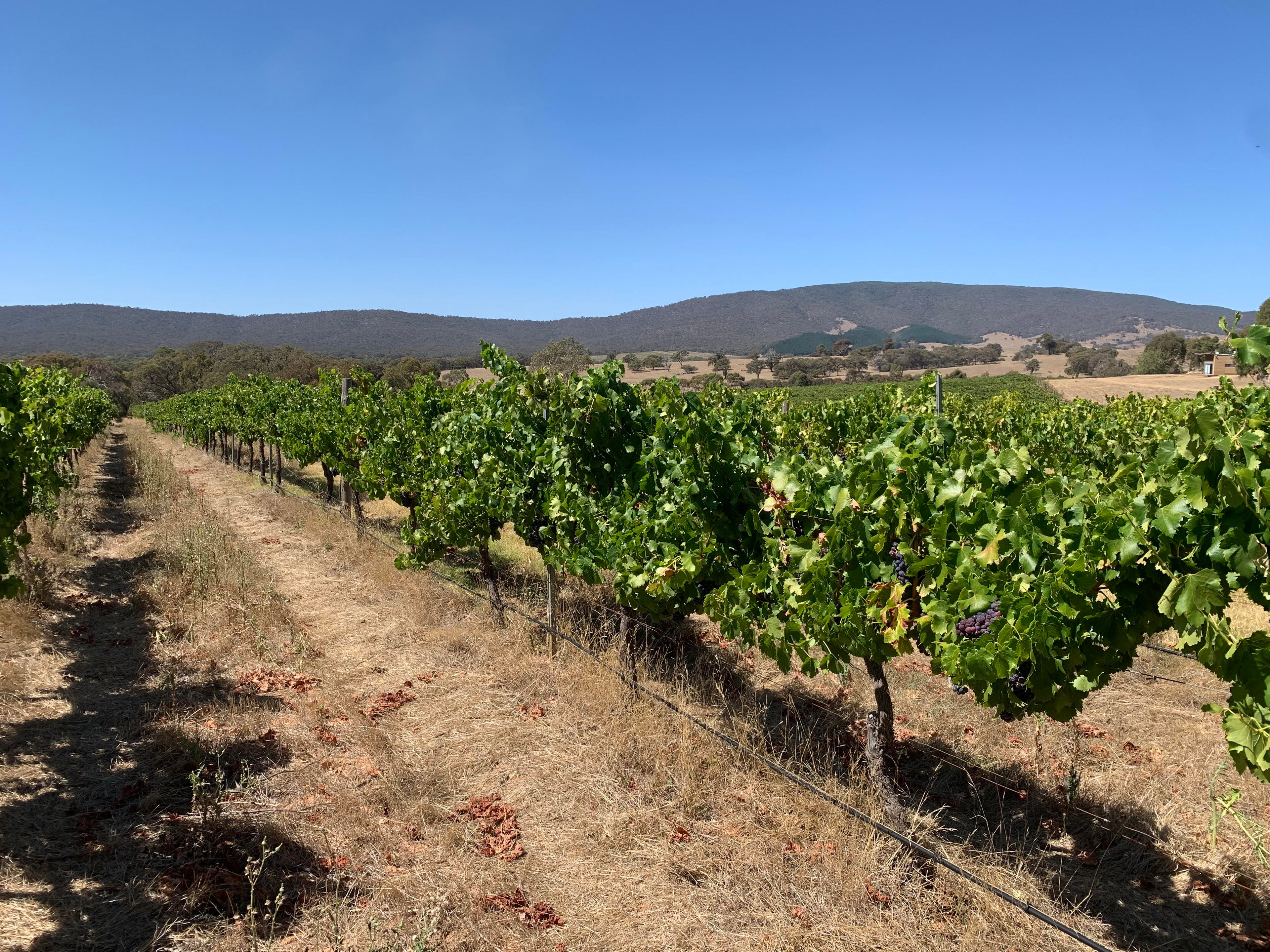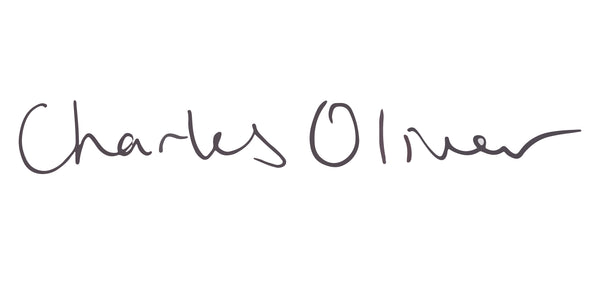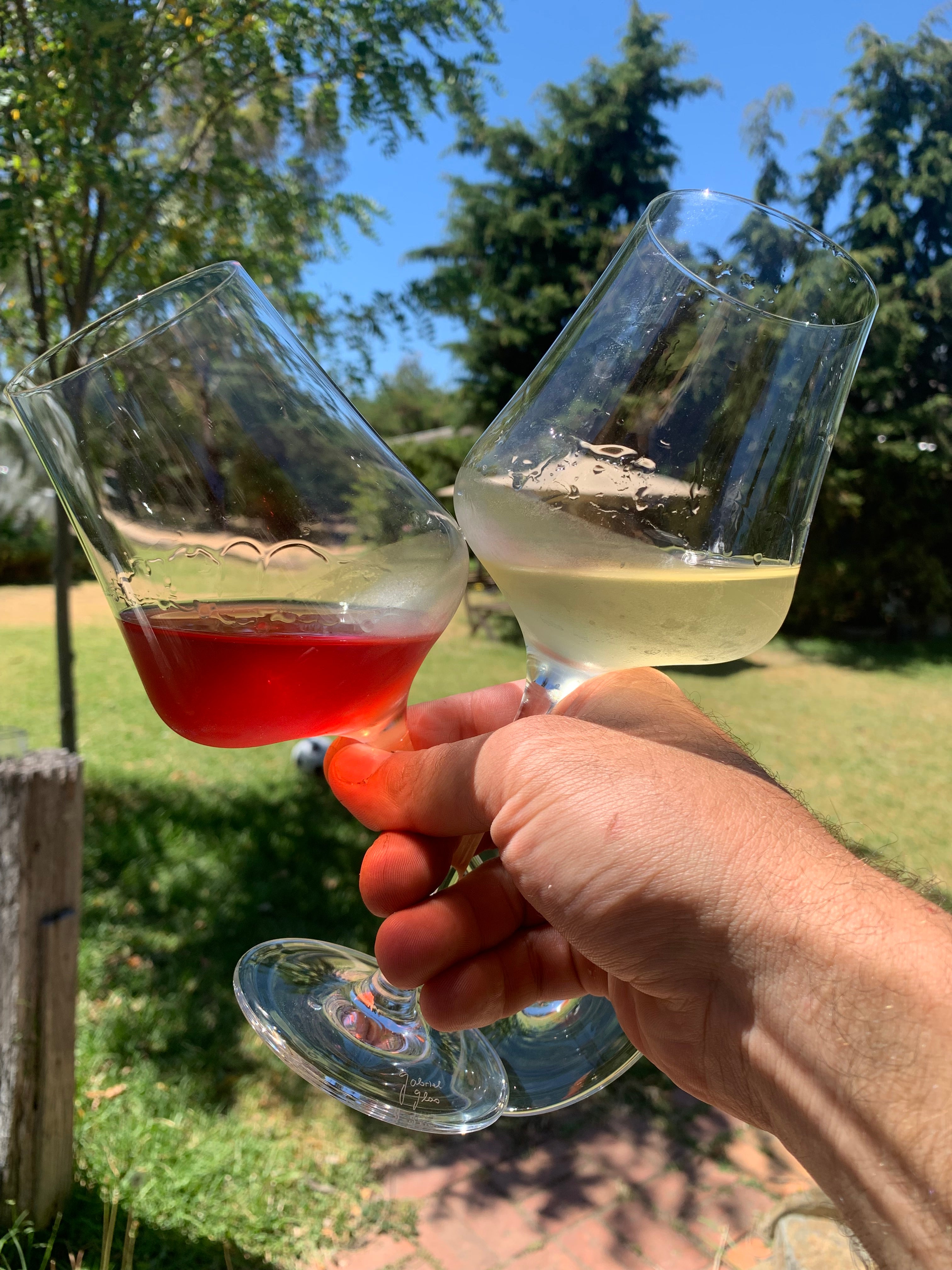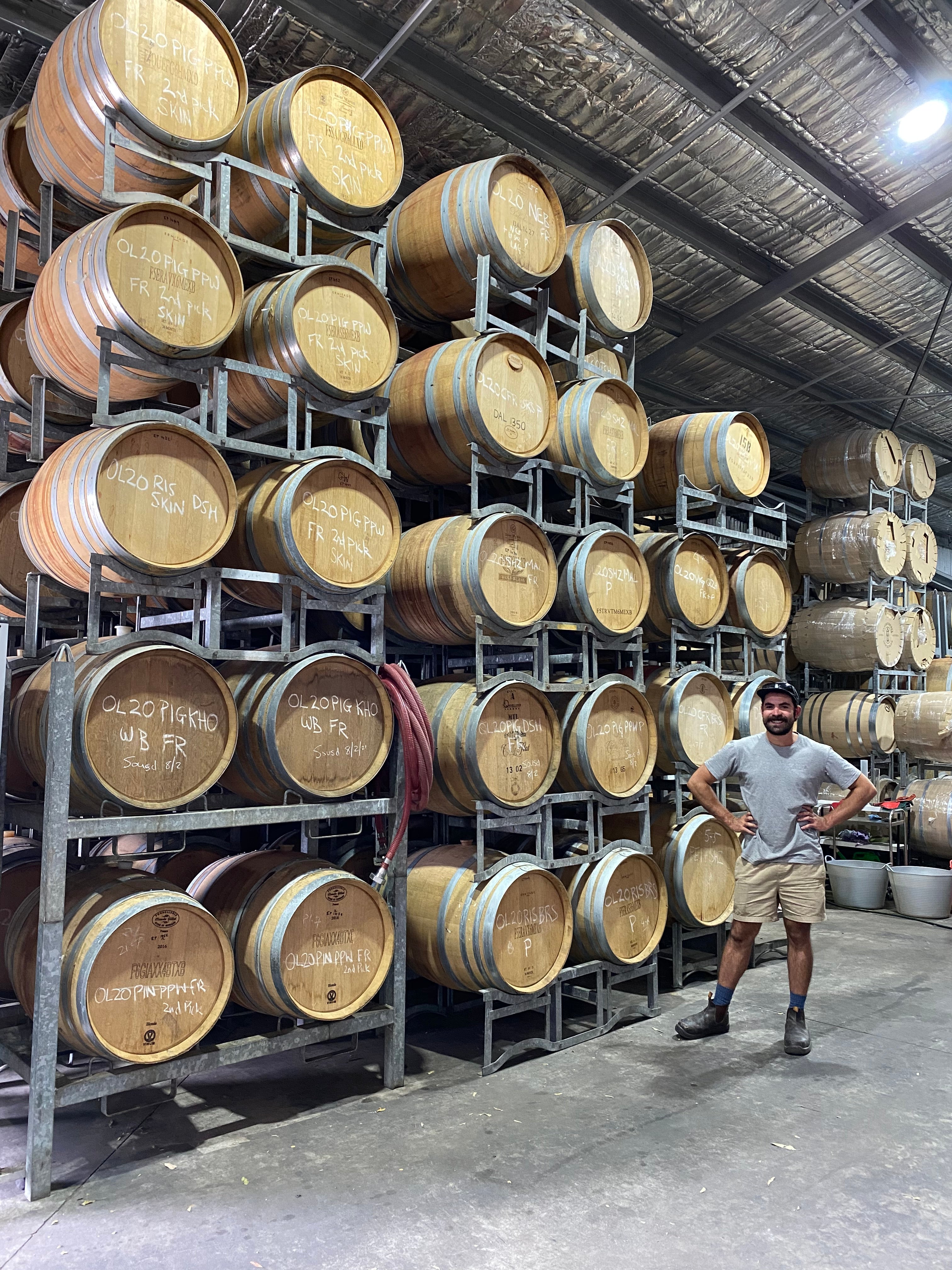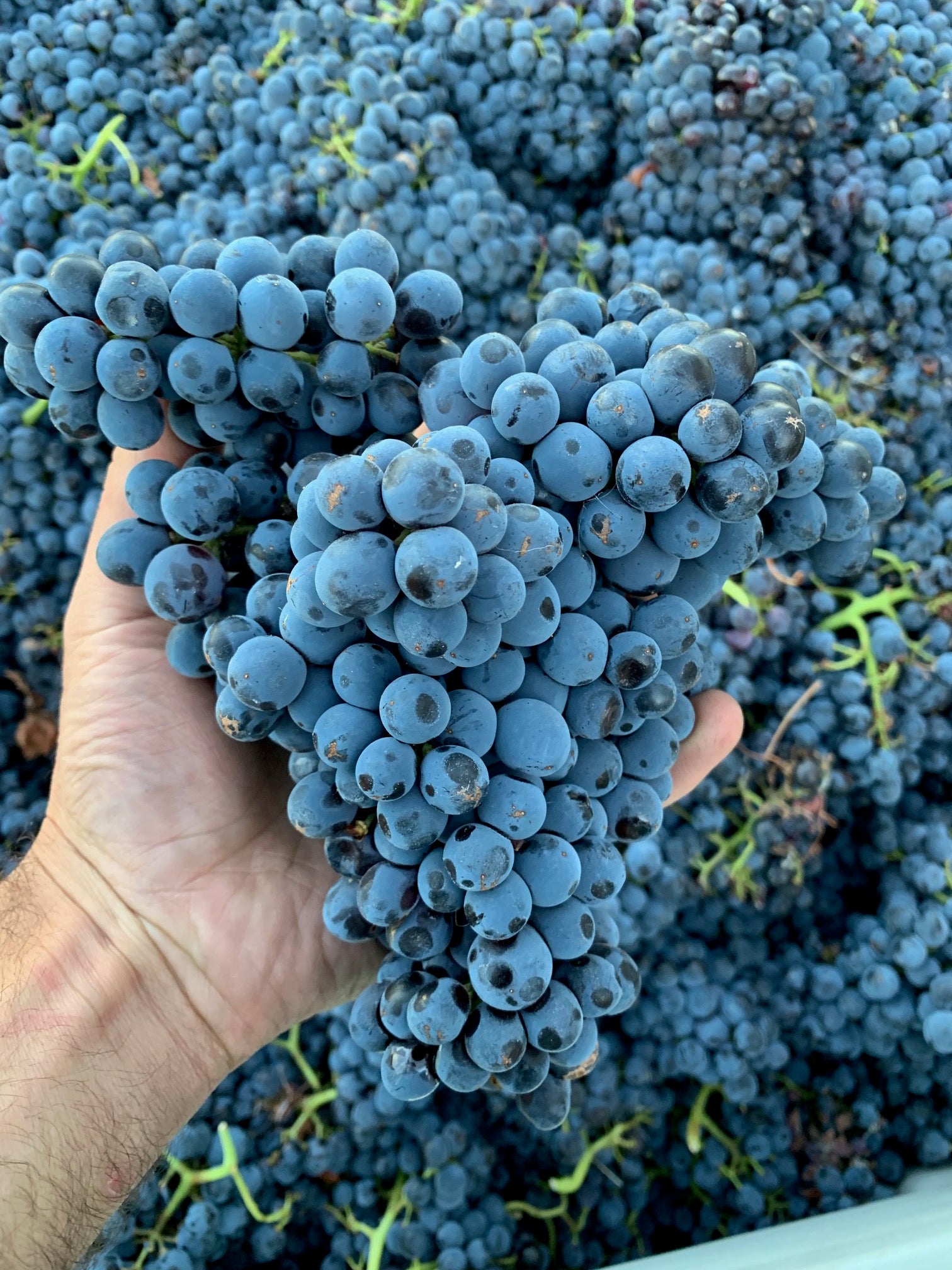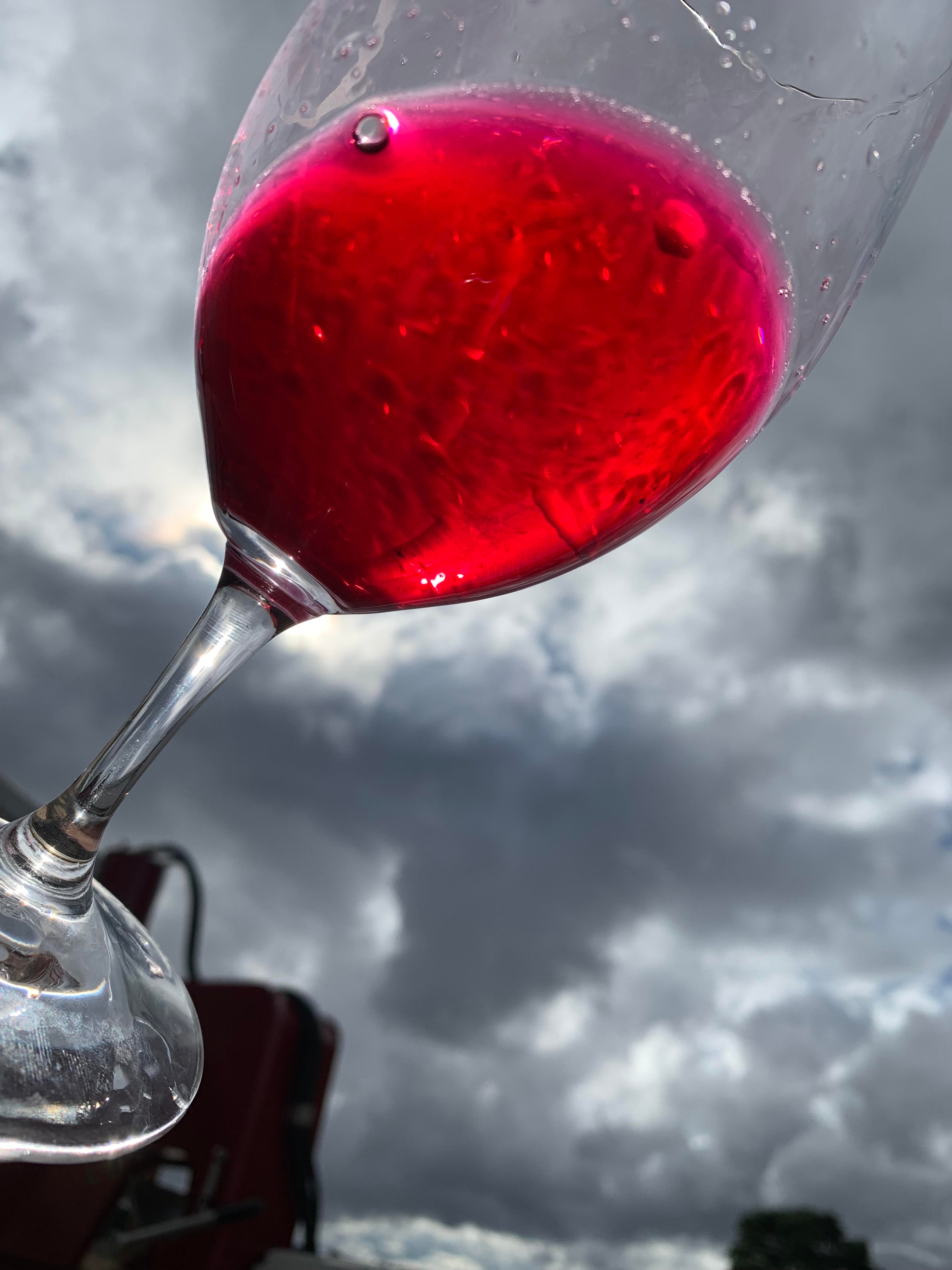
Who is Charles Oliver?
Charlie Mann traded in the recording studio for winemaking after a chance meeting with Owen Latta. An epiphany with one of Latta’s wines saw him ditch his long commute to take up work at Eastern Peake Vineyard. The Charles Oliver label was born in Mann’s second vintage. The offering is compact, focused on organic vineyards and earlier picking. Reds and whites both clock in at lower alcohols, with texture and fragrance uncluttered by oak, and are bottled with no fining or filtration and only a small dose of sulphur.
“It’s great fun making and sharing wine with family, friends and strangers,” says Mann. “I like experimenting as well, nothing too crazy, but still testing the boundaries to see what happens. As for making wine without additions, this is how I have been taught, and how I think wine should be made… Less large-scale industrial products, more small communities with lots of growers, makers, creators and producers feeding these communities.”
Growing up, Mann’s main passion was music. He trained with a few instruments and was encouraged by his parents to pursue music throughout his schooling. “I was lucky enough to attend a secondary school that had a strong music program. This is where I found my passion for recording music. I went on to pursue this as a career, working in recording studios in Melbourne, mixing live bands etc.”
While that career was a fulfilling one, the commute between his home in Ballarat and Melbourne started to take its toll. “I became tired of that and started floating the idea of looking for other work in another industry,” Mann says.
Wine was not remotely on the horizon then, but a chance meeting with Owen Latta (Eastern Peake and Latta Vino) in 2019 through a mutual friend saw him change course immediately. “He showed me some Eastern Peake pinot noir, and I was blown away. I remember thinking, ‘So, this is what wine really tastes like.’
Striking up a friendship, Mann went on to work that year’s harvest with Latta at his family’s Coghill’s Creek winery. “Chris Dilworth was working there also,” Mann says. “I stayed for the pruning and then the spring and summer. By the time the 2020 vintage rolled around, I was hooked. I asked Owen if I could make some wine there. He said yes, so Charles Oliver Wines was created with a tonne of certified organic Grenache from Shays Flat.”
From epiphany to making wine for his own label, Mann’s turnaround was remarkably quick, but there’s a continuity from his previous career that he says resonates. “Making wine is not too dissimilar to recording music. It is about capturing and preserving a special moment in time. It’s about gently guiding and encouraging the vines/grapes/must/wine or musicians to get the greatest performance and documenting that.”
Mann takes that analogy further, citing texture as a common thread. “There are so many stages in the recording process where you can add texture to a sound: the live room, microphone choice, preamplifiers, equalisers, compressors, magnetic tape, the list goes on. This is the same with wine for fruit ripeness, the type of press you use, skin contact, maceration, lees, oak, clay, élevage, etc. You are trying to make your best effort to enhance what you are capturing.”
That similar philosophical angle sees Mann working in a lo-fi way. “I mostly make wine from organic fruit with no additions or adjustments, bar a little sulphur,” he says. “Entirely wild primary and malolactic fermentations, with no fining or filtering.” Not forcing things is also key, which is a golden rule he lives by. “Loosen your grip – you can’t control everything, and that’s where the beauty is.”
The maxim that great wine is made in the vineyard is one that Mann also stands by. Working largely with organic fruit from the Shays Flat and Landsborough vineyards in the Pyrenees, selecting varieties that he believes perform best there, including grenache, cabernet sauvignon, shiraz, and sauvignon blanc. That range will ebb and flow, but the theme so far is earlier picked reds with shorter time on skins and both textural and lower alcohol whites.
“I try to make wine that I would enjoy drinking,” says Mann. “Whether that is a terroir driven red, darker style rosé or textural white, they all have to be interesting and engaging. From the choice in variety, to the farming, to the winemaking, and even the packaging. Also, I try to have some fun along the way.”
